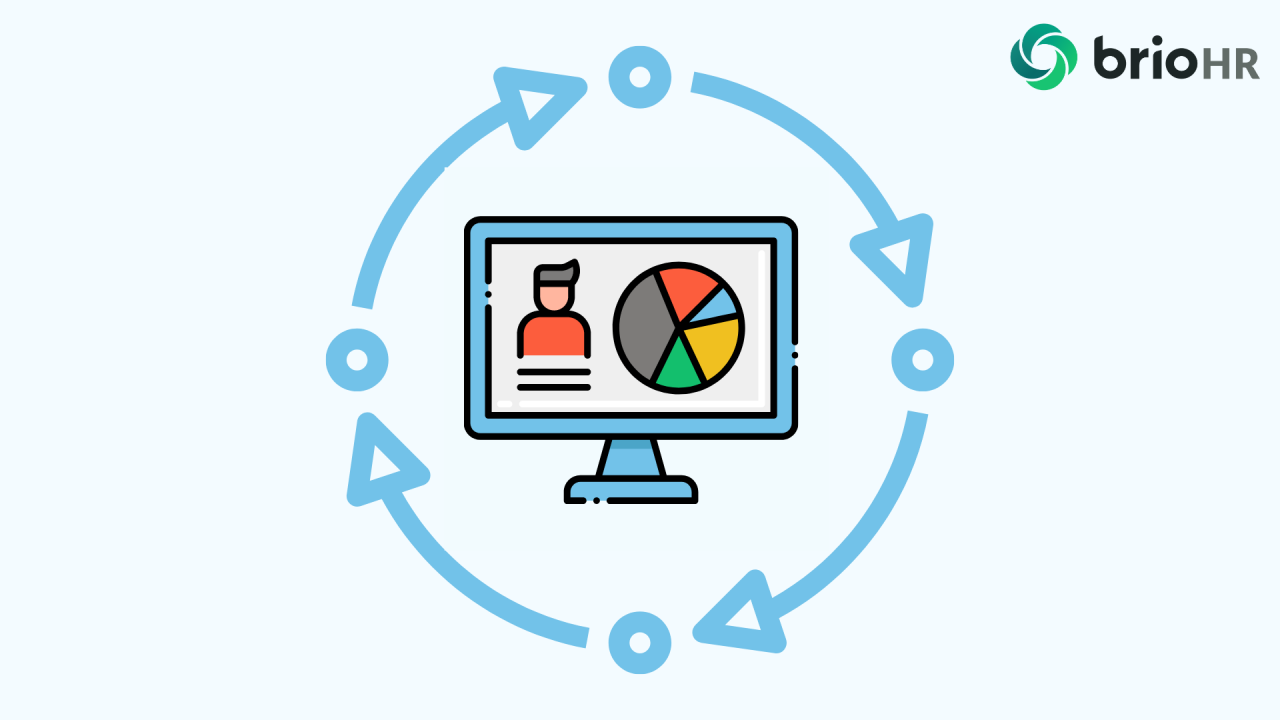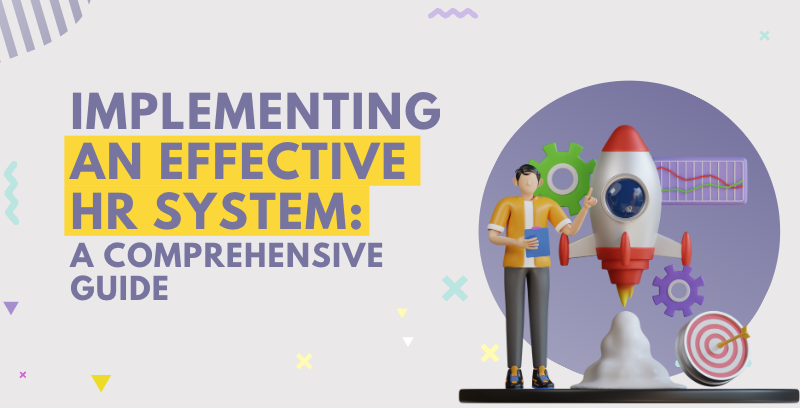Choosing an HRIS system that supports remote work and hybrid work models is no longer a luxury—it’s a necessity. The modern workplace is fluid, dynamic, and increasingly dispersed, demanding HR solutions that can keep pace. This guide navigates the complexities of selecting an HRIS that not only manages your workforce effectively but also empowers your employees, regardless of location.
We’ll delve into essential features, self-service capabilities, time tracking solutions, performance management strategies, and crucial security considerations. Get ready to transform your HR processes for the future of work!
From streamlining employee onboarding for remote hires to ensuring seamless performance reviews across geographical boundaries, the right HRIS can be a game-changer. We’ll explore key functionalities like integrated communication tools, robust self-service portals, and secure data management systems, all designed to optimize your hybrid or fully remote workforce. This isn’t just about technology; it’s about building a more connected, efficient, and engaged team, no matter where they’re working.
Essential Features for Remote & Hybrid Work Support: Choosing An HRIS System That Supports Remote Work And Hybrid Work Models

Choosing the right HRIS (Human Resource Information System) is crucial for businesses embracing remote and hybrid work models. A robust system streamlines HR processes, improves employee experience, and ensures compliance, all while accommodating geographically dispersed teams. The key lies in selecting a system equipped with features designed specifically to address the unique challenges and opportunities of a distributed workforce.
Effective management of remote and hybrid teams requires a sophisticated HRIS capable of handling a wider range of tasks than traditional on-site systems. Beyond basic payroll and benefits administration, considerations must include communication tools, performance management for dispersed teams, and robust security features to protect sensitive employee data accessible from various locations.
Core Functionalities for Managing Remote and Hybrid Teams
An HRIS supporting remote and hybrid work needs to go beyond basic HR functions. It must offer seamless integration of various tools and processes, ensuring efficient communication, performance tracking, and employee engagement regardless of location. Centralized data management, real-time reporting capabilities, and strong security protocols are also paramount. For instance, features like digital onboarding, remote access to employee handbooks, and secure document storage are essential for a smooth employee experience in a distributed environment.
Furthermore, the system should facilitate easy access to payroll information, benefits enrollment, and leave requests for remote employees.
Comparison of Essential Features in Leading HRIS Systems
Three essential features stand out when comparing leading HRIS systems for distributed workforces: time and attendance tracking, performance management, and communication tools. Let’s examine how these features are implemented in three popular systems (note that specific features and pricing may change):
Consider three hypothetical HRIS systems: “WorkFlowPro,” “TeamSync,” and “GlobalHR.” WorkFlowPro excels in its robust time tracking capabilities, offering GPS location verification and detailed reporting for remote employees. TeamSync provides a streamlined performance management module with customizable goal setting and regular check-ins, tailored for remote team collaboration. GlobalHR integrates seamlessly with various communication platforms, offering a centralized hub for announcements, company-wide updates, and team discussions.
Picking the right HRIS system is crucial for managing a dispersed workforce in today’s hybrid world. Understanding employee engagement and productivity across remote and in-office teams requires insightful data analysis, which is where leveraging using CRM data analytics to drive better business decisions becomes incredibly valuable. This data-driven approach allows HR to optimize HRIS functionality and better support the needs of employees regardless of their work location, ultimately boosting overall business efficiency.
While each system offers these core features, their specific implementations and user-friendliness vary considerably.
Importance of Integrated Communication Tools
Integrated communication tools within an HRIS are vital for remote collaboration. These tools foster a sense of community and connection, combating the isolation that can accompany remote work. A centralized communication platform within the HRIS allows for quick dissemination of company-wide announcements, policy updates, and important information. It also facilitates direct communication between employees and managers, regardless of location.
Features like instant messaging, threaded discussions, and integrated video conferencing can significantly improve communication efficiency and team cohesion, fostering a more connected and engaged workforce.
HRIS System Comparison for Remote Work Capabilities
| Feature | WorkFlowPro | TeamSync | GlobalHR |
|---|---|---|---|
| Time & Attendance Tracking | Excellent (GPS integration, detailed reporting) | Good (basic time tracking, requires integration with other tools) | Fair (basic time tracking, limited reporting) |
| Performance Management | Good (goal setting, reviews, but limited remote collaboration tools) | Excellent (customizable goal setting, regular check-ins, integrated communication) | Fair (basic performance reviews, lacks advanced features) |
| Integrated Communication | Fair (basic announcements, lacks robust communication tools) | Good (integrated chat, announcements, but limited video conferencing) | Excellent (seamless integration with various communication platforms, video conferencing) |
| Pricing (per user/month) | $50 | $75 | $100 |
| User Reviews (average rating) | 4.2 stars | 4.5 stars | 4.0 stars |
Employee Self-Service Capabilities

In today’s dynamic work landscape, characterized by remote and hybrid work models, empowering employees with robust self-service capabilities is no longer a luxury but a necessity. A well-designed employee self-service portal significantly streamlines HR processes, enhances employee experience, and reduces the administrative burden on HR teams. This allows HR professionals to focus on strategic initiatives rather than getting bogged down in day-to-day administrative tasks.Self-service functionalities allow remote and hybrid employees to manage various HR-related tasks independently, fostering autonomy and improving efficiency.
This access to information and control over personal data contributes to a more positive and productive work environment. Imagine a scenario where an employee needs to update their address or request time off – with a robust self-service system, this can be done quickly and easily, without needing to contact HR directly. This saves both the employee and the HR department valuable time and resources.
Key Self-Service Functionalities for Remote Employees
A comprehensive employee self-service portal should offer a range of functionalities designed to cater to the specific needs of remote and hybrid workers. These features empower employees to manage their HR tasks efficiently and independently, promoting a sense of ownership and control over their work lives. This includes access to essential information, tools for managing personal details, and streamlined processes for common HR requests.
- Time and Attendance Tracking: Employees can easily clock in and out, submit time-off requests, and view their time-off balances, all within the self-service portal. This eliminates the need for manual time sheet submissions and reduces the potential for errors.
- Personal Information Management: Employees can update their contact information, emergency contacts, banking details, and other personal data, ensuring HR records are always accurate and up-to-date. This simplifies payroll processing and reduces the risk of payment errors.
- Benefits Enrollment and Management: Employees can access information about their benefits packages, enroll in new benefits, or make changes to their existing coverage, all through a user-friendly interface. This simplifies the benefits enrollment process and makes it more accessible to employees.
- Performance Management Tools: Access to performance reviews, goal setting tools, and training resources allows employees to actively participate in their professional development. This fosters a culture of continuous improvement and growth.
- Learning and Development Resources: Employees can access training materials, online courses, and other learning resources, promoting continuous professional development. This contributes to employee skill enhancement and organizational growth.
Improved Employee Experience in a Hybrid Work Environment
Robust self-service features significantly enhance the employee experience in hybrid work environments. The convenience and accessibility of self-service tools contribute to a more positive and productive work environment. For instance, employees can easily access their payslips, update their tax information, or submit expense reports without having to wait for HR’s response or visit the office. This empowers employees to take control of their HR-related tasks and reduces frustration.
Picking the right HRIS system is crucial for businesses embracing remote and hybrid work models. Successful implementation, however, requires careful planning, as highlighted in this insightful article on HRIS system implementation challenges and best practices for successful rollout. Understanding these challenges upfront helps you choose a system that not only supports your flexible work arrangements but also ensures a smooth transition and maximizes employee satisfaction.
Reduced HR Administrative Burden
Employee self-service modules significantly reduce the administrative burden on HR professionals. By automating many routine HR tasks, self-service frees up HR staff to focus on more strategic initiatives, such as talent acquisition, employee engagement, and organizational development. This improved efficiency leads to better resource allocation and a more strategic HR function. For example, automating time-off requests reduces the manual processing required by HR, allowing them to focus on other important tasks.
Benefits of a User-Friendly Employee Self-Service Portal
A user-friendly employee self-service portal offers numerous benefits for both employees and HR professionals. The intuitive design and easy-to-navigate interface contribute to a positive employee experience, while the automation of tasks reduces HR’s workload and improves efficiency.
- For Employees: Increased autonomy, 24/7 access to HR information, faster processing of requests, improved communication, enhanced employee satisfaction.
- For HR Professionals: Reduced administrative workload, improved efficiency, better resource allocation, more time for strategic initiatives, enhanced data accuracy, streamlined HR processes.
Performance Management in Remote and Hybrid Settings

Managing employee performance effectively in remote and hybrid work environments presents unique challenges. The lack of constant in-person interaction can make it harder to monitor progress, provide timely feedback, and foster a strong sense of team cohesion. However, the right HRIS system can be instrumental in overcoming these obstacles and ensuring performance management remains a robust and fair process.
Challenges of Managing Remote Employee Performance, Choosing an HRIS system that supports remote work and hybrid work models
Geographically dispersed teams introduce several hurdles to effective performance management. Communication barriers can hinder clear goal setting and feedback delivery. It’s also more challenging to observe employees’ daily work habits and assess their contributions directly. Furthermore, ensuring equitable performance evaluations across different locations and time zones requires careful planning and a consistent approach. The risk of feeling isolated and disconnected from the team can also negatively impact employee morale and productivity, further complicating performance evaluations.
Managers need to adapt their leadership styles and performance management strategies to account for these factors.
Facilitating Remote Performance Reviews and Feedback Mechanisms Through HRIS
HRIS systems offer a powerful solution to many of these challenges. Features like integrated performance review modules allow for streamlined goal setting, regular check-ins, and 360-degree feedback collection. These systems can automate reminders for reviews, track progress against goals, and securely store performance data. They also facilitate the use of various feedback methods, such as self-assessments, peer reviews, and manager evaluations, all within a centralized and easily accessible platform.
Real-time performance tracking dashboards can provide managers with a clear overview of team performance, enabling proactive intervention when necessary. Moreover, features like instant messaging and video conferencing integration within the HRIS can further enhance communication and facilitate more frequent, informal feedback sessions.
Best Practices for Effective Performance Appraisals in Hybrid Work Models
Effective performance appraisals in hybrid settings require a multifaceted approach. Firstly, establishing clear expectations and goals from the outset is crucial. These goals should be specific, measurable, achievable, relevant, and time-bound (SMART). Regular check-ins, both formal and informal, are essential to provide ongoing feedback and address any performance issues promptly. Utilizing a combination of quantitative and qualitative data – including project outcomes, client feedback, and peer assessments – ensures a comprehensive evaluation.
Providing constructive feedback in a timely and sensitive manner is paramount. Finally, the appraisal process should be transparent and consistent across all employees, regardless of their work location. This fosters fairness and trust, contributing to a positive work environment.
Implementing a Remote Performance Management System Within an HRIS: A Step-by-Step Guide
Implementing a robust remote performance management system requires a structured approach. Here’s a step-by-step guide:
- Needs Assessment and System Selection: Analyze your organization’s specific needs and choose an HRIS system with comprehensive performance management features, considering scalability, integration capabilities, and user-friendliness.
- Goal Setting and KPI Definition: Collaboratively define clear, measurable, and achievable performance goals and key performance indicators (KPIs) for each role and team, aligning them with overall organizational objectives.
- System Configuration and Customization: Configure the chosen HRIS to reflect your organization’s performance management processes, customizing workflows, forms, and reporting options to meet specific requirements.
- Training and Rollout: Provide comprehensive training to managers and employees on using the new system and navigating the performance management processes. Ensure all users understand their roles and responsibilities.
- Performance Review Cycle Implementation: Establish a clear performance review cycle with regular check-ins and formal appraisals. Utilize the HRIS features to schedule reviews, collect feedback, and track progress.
- Data Analysis and Reporting: Regularly analyze performance data from the HRIS to identify trends, areas for improvement, and potential issues. Use this data to inform strategic decisions and enhance future performance management strategies.
- Continuous Improvement: Continuously evaluate the effectiveness of the system and the performance management processes. Seek feedback from employees and managers to identify areas for refinement and optimization.
Security and Data Privacy Considerations

In today’s interconnected world, robust security measures are no longer a luxury but a necessity for any HRIS system, especially those supporting remote and hybrid work models. The dispersed nature of remote workforces expands the attack surface, making data breaches more likely. Furthermore, stringent data privacy regulations add another layer of complexity, demanding compliance to protect sensitive employee information.
Ignoring these crucial aspects can lead to significant financial losses, reputational damage, and legal repercussions.The importance of data security and privacy in an HRIS system cannot be overstated, particularly when dealing with a remote workforce. The sensitive personal information stored within these systems—including salaries, performance reviews, medical records, and other confidential data—makes them prime targets for cyberattacks. Failure to implement adequate security measures can result in significant financial penalties, legal action, and damage to an organization’s reputation.
Moreover, a data breach can severely impact employee trust and morale.
Data Privacy Regulations and Global Compliance
Compliance with data privacy regulations, such as the General Data Protection Regulation (GDPR) in Europe and the California Consumer Privacy Act (CCPA) in the United States, is paramount for organizations with globally distributed teams. These regulations dictate how personal data must be collected, processed, stored, and protected. Failure to comply can result in hefty fines and legal consequences.
A robust HRIS system must be designed and implemented with these regulations in mind, ensuring that all data processing activities are lawful, fair, and transparent. This includes obtaining explicit consent for data collection, providing individuals with access to their data, and implementing mechanisms for data deletion upon request. Regular audits and assessments are crucial to ensure ongoing compliance.
Security Features for Protecting Sensitive Employee Data
Several security features are essential for protecting sensitive employee data in a remote work environment. Multi-factor authentication (MFA), for instance, adds an extra layer of security by requiring users to provide multiple forms of authentication before accessing the system. This could involve a password, a one-time code sent to their mobile phone, or biometric verification. Data encryption, both in transit and at rest, protects data from unauthorized access even if a breach occurs.
Access controls, based on the principle of least privilege, ensure that employees only have access to the data they need to perform their jobs. Regular security audits and penetration testing help identify vulnerabilities and ensure the system remains secure. Implementing a robust security information and event management (SIEM) system allows for real-time monitoring of the system for suspicious activity and enables quick responses to security incidents.
Secure Access Controls and Data Encryption
Secure access controls and data encryption are fundamental to maintaining data integrity and confidentiality within an HRIS. Access controls restrict access to sensitive data based on roles and responsibilities, preventing unauthorized users from viewing or modifying information. Role-based access control (RBAC) is a common approach, assigning different levels of access to various user groups. Data encryption transforms data into an unreadable format, protecting it from unauthorized access even if intercepted.
This includes both data in transit (during transmission) and data at rest (when stored). Strong encryption algorithms, such as AES-256, should be used to ensure maximum protection. Regular updates and patching of the HRIS system and its underlying infrastructure are also crucial to address known vulnerabilities and prevent exploitation. This proactive approach minimizes the risk of data breaches and ensures the ongoing security of sensitive employee information.